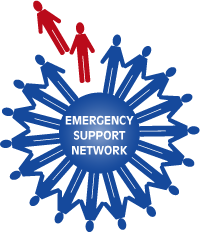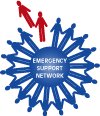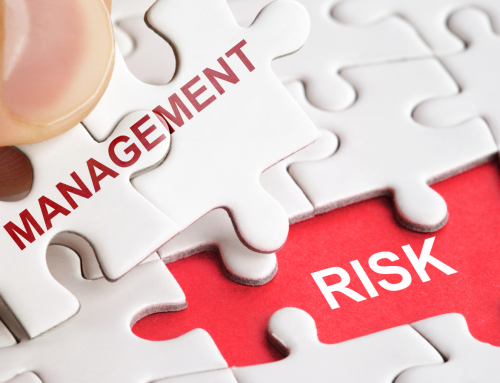As human beings we feel safe when we have control over our world. We are comfortable when we are able to predict what will happen to us. Confronted with a potential pandemic such as the Swine Flu, SARS or the current Coronavirus, many people feel anxious and afraid. This for some may be a simple and sensible concern but for others it can be quite paralysing. It is important to remember that our fear is essentially a dread of the unknown. During a pandemic we are still discovering the speed of infection, possible mutation, or whether it will worsen in severity. When faced with so many uncertain possibilities, some of which are truly frightening, it is important to be psychologically prepared.
Although we can feel helpless in the face of a pandemic, there is thankfully a long list of ways we can plan ahead and keep the situation in perspective. Know that being psychologically able to cope will certainly reduce needless anxiety and restore a sense of control. So how can you psychologically prepare for a pandemic?
- Carefully research the issues and avoid obsessively watching all media reports. Remember the media often sensationalise certain aspects to sell copy. Be discerning about the news sources you and your children view.
- Remind yourself of current reassuring facts surrounding the disease such as low mortality rates, quarantine procedures and national and international pandemic response plans, The current Coronavirus is highly contagious but still has relatively a very low mortality rate given the number of reported cases. Those who are healthy appear not to have succumbed to the virus.
- Take sensible health precautions – wash your hands, use hand sanitisers / alcohol based wipes, and cover your mouth and nose while coughing or sneezing. Use disposable tissues to wipe your own or children’s noses and put these in a lined covered bin immediately after use and wash your hands afterwards. Teach your family members to do the same. Remember to sing (inside your head) the Happy Birthday song as this indicates the correct time required for proper handwashing!
- Try not to touch your face (especially eyes, nose and mouth which can transmit the virus after touching an infected droplet). Make up games for children to encourage them not to do this. For example, set a timer, and reward them for not touching their face until after the timer goes off and they have washed and / or antiseptic wiped their hands.
- Identify what food (slowly build up a supply of long-life groceries / household goods / pet food) and other essentials such as a month’s supply of medication/s, that you may need in the event you are required to stay home for an extended period. You can find an emergency pantry list at: www.pantrylist.com.au
- Have emergency telephone numbers such as your general practitioner, local emergency department, and state health authorities in an easily accessible place.
- Look at your daily routines to reduce exposure. If a pandemic warning is raised could you perhaps shop at quieter times, order online, or have children cared for at home?
- Become aware of your organisation’s pandemic preparedness and response plan. Keep up to date with briefings and notifications, participate in discussion forums about alternative work arrangements and comply with any directives issued, particularly those suggesting you stay at home.
- In times of uncertainty many people feel confused and anxious. This can also be the case for your colleagues, supervisors and managers. They are people too, who may be experiencing their own stress and concern. Try to bear this in mind when you are communicating with others.
- In the event of a pandemic creating multiple absences of people at work, be prepared for the possibility that you may be required to take on additional duties or different tasks. Ensure you are properly trained in how to perform these tasks and monitor your stress / fatigue levels to prevent any personal risk. This preparation needs to occur now rather than later.
- When interacting at work try to minimise any physical contact with others such as shaking hands. If required try instead to introduce the Ebola ‘bump’ handshake….touching with elbows! Or even the new toe tap! Try to increase your distance from others by approximately one metre where possible. Avoid contact with people with cold or flu symptoms. Use your knuckle instead of a fingertip to push elevator buttons and light switches.
- Ensure your work area is clean by regularly using hand wipes, cleaning surfaces / keyboards / monitors / telephones / mobile phones, particularly if you share a workstation. Clean your hands with antibacterial wipes frequently especially after using door handles, light switches, toilets, or public areas. If travelling by plane, wipe down the tray table, arm rests, monitor and remote control, seat belt with an antiseptic wipe, and wipe your hands when you return to your seat after going to the toilet to ensure that any virus on a surface that you have touched (door lock, flush, seat head rests) is eradicated.
- If you are required to leave work as a precaution, make sure you are aware of the alternative communication strategies put in place by your organisation. Try to use technology such as telephones, the internet and apps such as Skype / WhatsApp and Viber to stay connected to your colleagues and workplace.
- Talk about your fears and concerns with close family members and friends. Focus on practical solutions for how you would manage possible situations i.e. how you will care for each other if someone becomes ill while avoiding risk of infection, is there someone that could assist in bringing you food (leaving meals at the front door) if you or your children were not able to leave home? Is there someone that could look after your children if their school or day care were temporarily closed? Problem solving potential issues prior to them occurring will reassure you that you are prepared and able cope with an uncertain future.
- In the event that you continue to feel anxious, arrange a telephone / video counselling appointment with a counsellor either privately or through your organisation’s Employee Assistance Program.
- Explain what is happening to children in a factual, low key and reassuring manner. Clarify that this may simply mean that the family has to stay at home for a few days.
- If you are unwell, stay home from work, school or public places, including public transport. Use masks and respirators around the home to prevent the spread of infection.
- Teach young children how to use the telephone and who to call in the event you become unwell and are not able to call for help.
- If you feel you are not coping after experiencing the loss of a family member, friend or colleague, please seek assistance from a qualified counsellor. Some workplaces may implement employee assistance programs and critical incident support services, please access these if you have the opportunity.
Most importantly remember that this pandemic, like others before, will eventually pass. The great news is that with every pandemic, scientists learn more about the various viruses and how to contain and treat them. In Australia, we are fortunate to have world-class healthcare and some extremely robust emergency management and health services.
References:
www.health.gov.au/health-topics/novel-coronavirus-20109-nCoV
www.news.com.au





